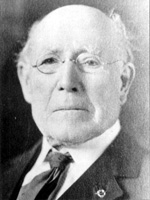
U.S. Rep. Howard "Buck" McKeon
[Rep. Howard “Buck” McKeon] – Members of the House Committee on Education and the Workforce introduced two additional proposals Thursday to reform the nation’s workforce investment system. The federal government currently administers at least 47 separate job training and employment programs, representing an annual taxpayer investment of $18 billion. Steps are needed to reduce waste, improve accountability, and ensure services are meeting the needs of today’s workers and employers. Chairman John Kline, R-Minn., praised these legislative efforts by his Republicans colleagues as the next step in the committee’s efforts to reauthorize the Workforce Investment Act.
“Since the start of the 112th Congress, the Education and the Workforce Committee has been examining how best to strengthen the nation’s job training system,” said Chairman Kline. “We cannot allow a burdensome bureaucracy to undermine support for workers, frustrate employers, and waste taxpayer resources. The committee has held numerous oversight hearings to determine the challenges facing workers and employers, and the proposals my Republican colleagues introduced reflect what we’ve learned.”
“Getting America working again requires real solutions,” said Rep. Howard “Buck” McKeon, R-Santa Clarita, former chairman of the committee. McKeon has authored the Workforce Investment Improvement Act (H.R. 2295). The legislation, introduced in June, will increase flexibility in the services offered to job seekers and eliminate arbitrary barriers that prevent workers from accessing training immediately. “My colleagues and I are committed to legislating commonsense, conservative solutions to our nation’s job crisis. These bills strengthen job training opportunities for workers and job seekers and build on reforms to improve programs and services to put Americans back to work.”
Rep. Virginia Foxx, R-N.C., chairwoman of the Subcommittee on Higher Education and Workforce Training, today introduced the Streamlining Workforce Development Programs Act (H.R. 3610). The legislation consolidates 33 of the 47 job training programs identified in a 2011 report by the Government Accountability Office. H.R. 3610 will offer greater clarity to local workforce leaders, provide better accountability, and foster an out-come driven job training system.
“Current federal workforce education programs are hopelessly redundant and expensive, offering up unnecessary confusion and bureaucracy across 47 separate programs,” said Foxx. “Americans are fed up with these endless layers of complexity in the federal government and this bill streamlines the byzantine workforce training system while making the programs more responsive and accountable to taxpayers.”
The third part of the committee’s reform effort is championed by Rep. Joe Heck, R-Nev., who introduced today the Local Job Opportunities and Business Success (JOBS) Act (H.R. 3611). Heck’s proposal will strengthen the role of America’s job creators in workforce investment decisions and help workers receive training for jobs that are in demand. “Washington’s one-size-fits-all approach to workforce training has failed our families and our communities,” said Heck. “The Local JOBS Act emphasizes workforce training based on local business needs and streamlines the bureaucracy that has hindered progress on this critical issue.”
“The proposals brought forward by Reps. Buck McKeon, Virginia Foxx, and Joe Heck will serve as the foundation for the committee’s work to reauthorize the Workforce Investment Act in the months ahead,” continued Chairman Kline. “I want to thank my colleagues for their efforts on behalf of the nation’s workers, job seekers, and employers.”
To read learn more about the Streamlining Workforce Development Programs Act, click here: http://edworkforce.house.gov/News/DocumentSingle.aspx?DocumentID=271811
To learn more about the Local JOBS Act, click here: http://edworkforce.house.gov/News/DocumentSingle.aspx?DocumentID=271813
Like this:
Like Loading...
Related




 Tweet This
Tweet This Facebook
Facebook Digg This
Digg This Bookmark
Bookmark Stumble
Stumble RSS
RSS



























REAL NAMES ONLY: All posters must use their real individual or business name. This applies equally to Twitter account holders who use a nickname.
0 Comments
You can be the first one to leave a comment.